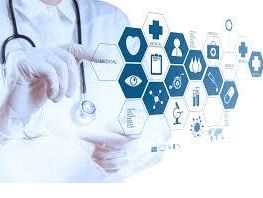
Medical Management Software-A Boon to Medical Industry
There are myriads of tasks that need to be integrated together sequentially for the optimal functioning of medical practice. For medical practitioners, the patient’s health is often the primary concern, making it essential to upgrade their knowledge and skills on a regular basis. The administration also entails efficient communication, personnel management, patient record maintenance,CRF Health record maintenance, billing, pharmacy management, nursing station management, insurance claim, legal compliance, account management, tax payments, and more. A medical practitioner typically can’t spare sufficient time for all such tasks while still maintaining adequate time client-facing. There are Medical Practice management software programs available for small and medium sized medical practices as well as hospitals, making it imperative that the medical practitioner is using the latest and most efficient ways of managing the business.
Medical Practice Management
Broadly, any medical practice management is divided into three sections, which are as follows:
- Management of Medical Practice
This covers the scheduling of appointments with the medical care provider and sending reminders to patients to ensure that they arrive on time. Patient information, such as name, age, complaint, previous treatment, address, insurances provider, and more is also collected. In addition it integrates information such as whether the patient was inpatient or outpatient.
- Billing
Medical billing is perhaps the most complex of all forms of bills because it differs so widely from patient to patient, making it difficult to standardize. Basic information includes date of patient check-in, date of discharge, relevant nursing and pharmacy charges, equipment charges, x-ray fees, room charges, operation theater charges, consumables, insurance verification and claim, co payment collected or to be collected, and more. Outpatient billing also forms part of this section
- Integration and Security
The integration of billing information with management information is necessary for generating accounts and complying with legal stipulations as well as tax payments. While integrating the information, it is necessary to ensure that the data integrity is maintained. It is extremely important that such information remain confidential as the information may need to be accessed every time the patient returns to assess treatment progress and adjust medication dosage if necessary.
The list of most popular medical practice software programs includes
- ADP AdvancedMD
- Kareo
- iSalus Healthcare
- NextGen
- Athenahealth
Advantages
Benefits of using medical practice software include:
- The ability to manage the practitioner’s time most efficiently, thereby increasing the number of patients that he or she is able to treat
- Since Electronic Health Records (EHRs) are maintained efficiently, treatment is improved
- Communication is easier, faster, and cheaper with internal and external communication facilities such as chats, emails, VoIP, etc
- In the US, most medical bills are paid by insurance companies. Therefore, compliance with HIPAA or Health Insurance Portability and Accountability is crucial. These software programs have required prompts asking details that are needed for ensuring claims in time.
- Classification of diseases as per ICD -10, which is a standard set by the World Health Organization also becomes easier with software. Compliance with this standard is necessary for statistical purposes
- To plan the timing of operations and nurse’s schedules becomes easier with software programs. Formerly, errors would often force some nurses to work overtime, leaving them exhausted and often unable to do their job efficiently. Even the mandatory offs are planned by the system, and it is easy to change the schedule on short notice as well.
- Since the software integrates even accounts and payroll system, it is possible to generate information for audit in no time. Monthly payments can also be managed efficiently based on the account information.
- Pharmacy management is another tough part of any medical practice. Not all medical practices have pharmacies attached to them. But when they do, it is necessary to keep track of medicines that are in stock, which have reached reorder levels, and which are soon going to expire. Stocks of equivalent drugs also need to be grouped together. Costs of medicines and other consumables such as tissues, diapers, bandages, etc., are directly transferred to billing.
Using medical practice software improves the functioning and reduces attrition in the hospital. Health care is a risky business because wrong treatment can result in the medical professional being sued. A system that reduces possibilities of errors is desirable, and medical practice software provides exactly that. It also generates more profits for the business since the doctor is left with more time to accommodate more patients in the daily schedule, and also finds time to upgrade systems and knowledge.
